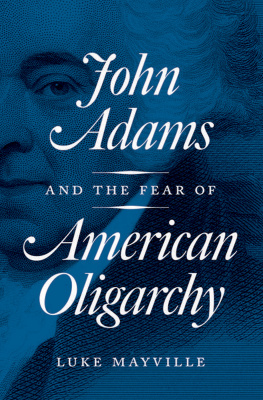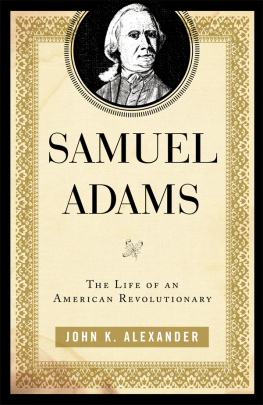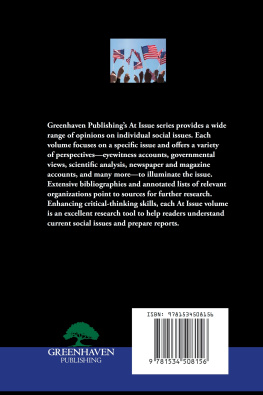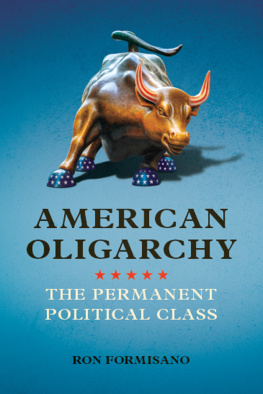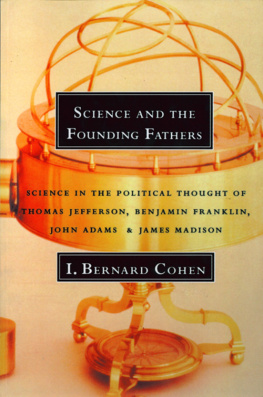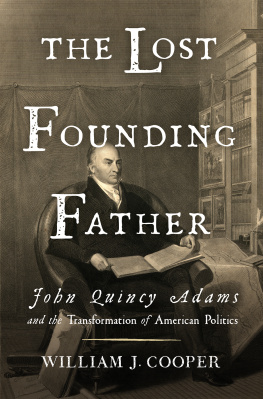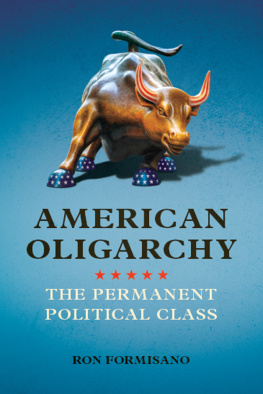
JOHN ADAMS AND THE FEAR OF AMERICAN OLIGARCHY
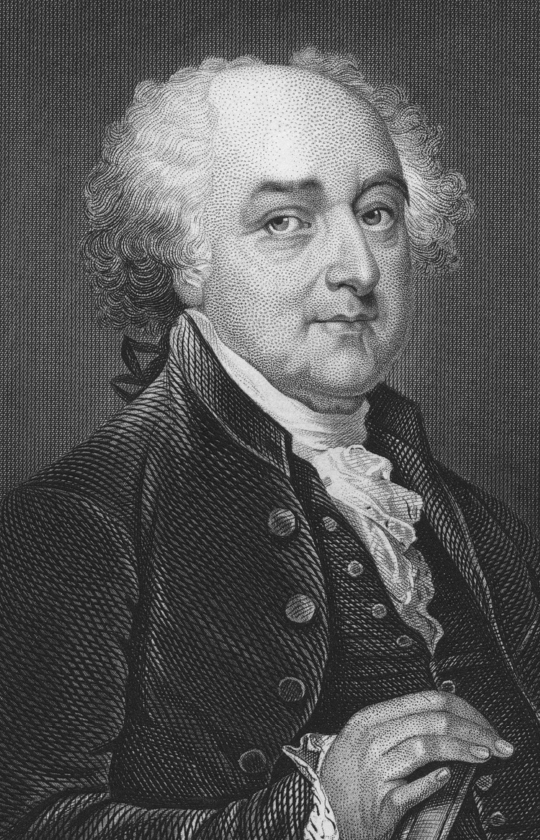
John Adams

AND THE FEAR OF

American Oligarchy
LUKE MAYVILLE
PRINCETON UNIVERSITY PRESS
Princeton & Oxford
COPYRIGHT 2016 BY PRINCETON UNIVERSITY PRESS
PUBLISHED BY PRINCETON UNIVERSITY PRESS,
41 William Street, Princeton, New Jersey 08540
IN THE UNITED KINGDOM: PRINCETON UNIVERSITY PRESS,
6 Oxford Street, Woodstock, Oxfordshire OX20 1TW
press.princeton.edu
The quotation on page v is copyright 2014 by Garry Wills and was first published in the New York Review of Books.
Frontispiece and jacket art from The New York Public Library. Miriam and Ira D. Wallach Division of Art, Prints and Photographs: Print Collection, The New York Public Library. John Adams, New York Public Library Digital Collections. Accessed June 13, 2016. http://digitalcollections.nypl.org/items/510d47da-2fd6-a3d9-e040-e00a18064a99
All Rights Reserved
Library of Congress Cataloging-in-Publication Data
Names: Mayville, Luke, 1985 author.
Title: John Adams and the fear of American oligarchy / Luke Mayville. Description: Princeton : Princeton University Press, 2016. | Includes bibliographical references and index.
Identifiers: LCCN 2016003613 | ISBN 9780691171531 (hardcover : alk. paper)
Subjects: LCSH: Adams, John, 17351826Political and social views. | United StatesPolitics and government17831809. | United StatesPolitics and government17751783. | OligarchyUnited States.
Classification: LCC E322 .M36 2016 | DDC 973.4/4092dc23 LC record available at http://lccn.loc.gov/2016003613
British Library Cataloging-in-Publication Data is available
This book has been composed in Adobe Caslon Pro
Printed on acid-free paper.
PRINTED IN THE UNITED STATES OF AMERICA
1 3 5 7 9 10 8 6 4 2
TO MY MOTHER

The proof that we live in a plutocracy is not that the
wealthy get most of the prizes in our society, but
that majorities think that is how it should be.
GARRY WILLS, New York Review of Books,
January 2014
Or do you suppose that the regimes arise from
an oak or rocks and not from the dispositions
of the men in the cities, which, tipping the scale
as it were, draw the rest along with them?
SOCRATES, in Platos Republic
The Distinction of property will have more
influence than all the rest in commercial countries,
if it is not rivalled by some other distinction.
JOHN ADAMS, notes on Mary Wollstonecrafts
Historical and Moral View of the Origin and
Progress of the French Revolution
C ontents

ONE
A Perennial Problem
23
TWO
The Goods of Fortune
58
THREE
Sympathy for the Rich
95
FOUR
Dignified Democracy
124
CONCLUSION
American Oligarchy
148
Acknowledgments

T HIS BOOK WAS MADE possible by the generous support of many individuals and institutions. I am especially indebted to the Yale University Department of Political Science, where I wrote the doctoral dissertation from which this project was adapted. I must first acknowledge my dissertation committee. Special thanks to Steven Smith, who accepted me as a student for no good reason and who patiently ushered this project from a four-page proposal to its current form. I am also deeply indebted to Bryan Garsten, who challenged me to think with historical texts and not just about them, and who first suggested that my thoughts were worthy of book form. Thanks also to Karuna Mantena, whose advice was indispensable at moments when my project lost focus. Stephen Skowronek, David Mayhew, and Andrew Sabl read much or all of the manuscript and provided helpful advice for revision. Other Yale faculty who supported the project or gave advice include Ian Shapiro, Danilo Petranovich, and Helene Landemore. Many of my fellow graduate students also shaped this project directly or indirectly, including Lucas Thompson, David Lebow, Shawn Fraistat, Joshua Braver, Teresa Bejan, Lucas Entel, Travis Pantin, Celia Paris, Blake Emerson, Anurag Sinha, Matt Longo, Andrea Katz, Adom Getachew, Peter Verovsek, Navid Hassanpour, Lisa Gilson, Robert Arnold, Lionel Beehner, Stefan Eich, Umur Basdas, Brandon Terry, and Josh Simon. Other scholars who supported this project were Joshua Cherniss, Prithvi Datta, Michael Lamb, Jim Wilson, Loubna El Amine, Jeffrey Green, John McCormick, Nadia Urbinati, Melissa Lane, Aziz Rana, Benjamin Ewing, Lisa Herzog, Daren Staloff, Michael Zuckert, David Grewal, Patrick Weil, Madhav Khosla, Aurelian Craiutu, Pratap Bhanu Mehta, and Jeffry Burnam. Special thanks to James Read and Alex Zakaras for reading entire chapters at a critical stage and providing invaluable comments.
I am deeply indebted to Danielle Allen, who provided me with a model of civic-minded scholarship and who encouraged this project at a moment when its prospects were uncertain. I am also very grateful for several conversations with Joseph J. Ellis, who encouraged me to reach an audience beyond the academy and who paved the way for this book with his own scholarship on the theme of inequality in John Adamss writings.
I am grateful to the Jack Miller Center and the Yale Center for the Study of Representative Institutions for creating an intellectual environment in which the study of American political thought can thrive. I also owe a great debt of gratitude to the Political Theory Institute at American University, where I worked on this project as a postdoctoral fellow for the year 20142015. While at AU, I had the privilege of teaching two seminars, American Political Thought and Inequality and Democracy, both of which helped sharpen the concepts and arguments found in these pages. I would like to thank the students of these seminars and also the many AU faculty who supported my work, including Alan Levine, Thomas Merrill, Jeremy Janow, and Sarah Houser. The final stage of production was carried out with the support of Columbia University and the Columbia Center for American Studies, where I currently reside as a postdoctoral fellow. Special thanks are due to Casey Blake, Andrew Delbanco, Tamara Mann Tweel, Angela Darling, Roosevelt Monts, and the unforgettable students in my 20152016 section of Contemporary Civilization.
I owe a special thanks to Rob Tempio, Gail Schmitt, Debbie Tegarden, Ryan Mulligan, Chris Ferrante, Doreen Perry, Jaime Estrada, and everyone else at Princeton University Press who helped produce this book. Thank you to Nancy Gerth, my fellow Idahoan, for her careful indexing work. Thanks also to the editorial staff at Polity and to anonymous reviewers who shaped and supported my first published work on the political theory of John Adams.
I have been fortunate to share versions of the chapters that follow with many workshops and conferences, and I owe many thanks to the Georgetown Political Theory Workshop, the Yale Political Theory Workshop, the Penn Graduate Political Theory Workshop, the Princeton Graduate Conference in Political Theory, the Rothermere American Institute, the Association for Political Theory, the Northeastern Political Science Association Annual Conference, the New England Political Science Annual Conference, and the American Political Science Association Annual Conference.
Next page
